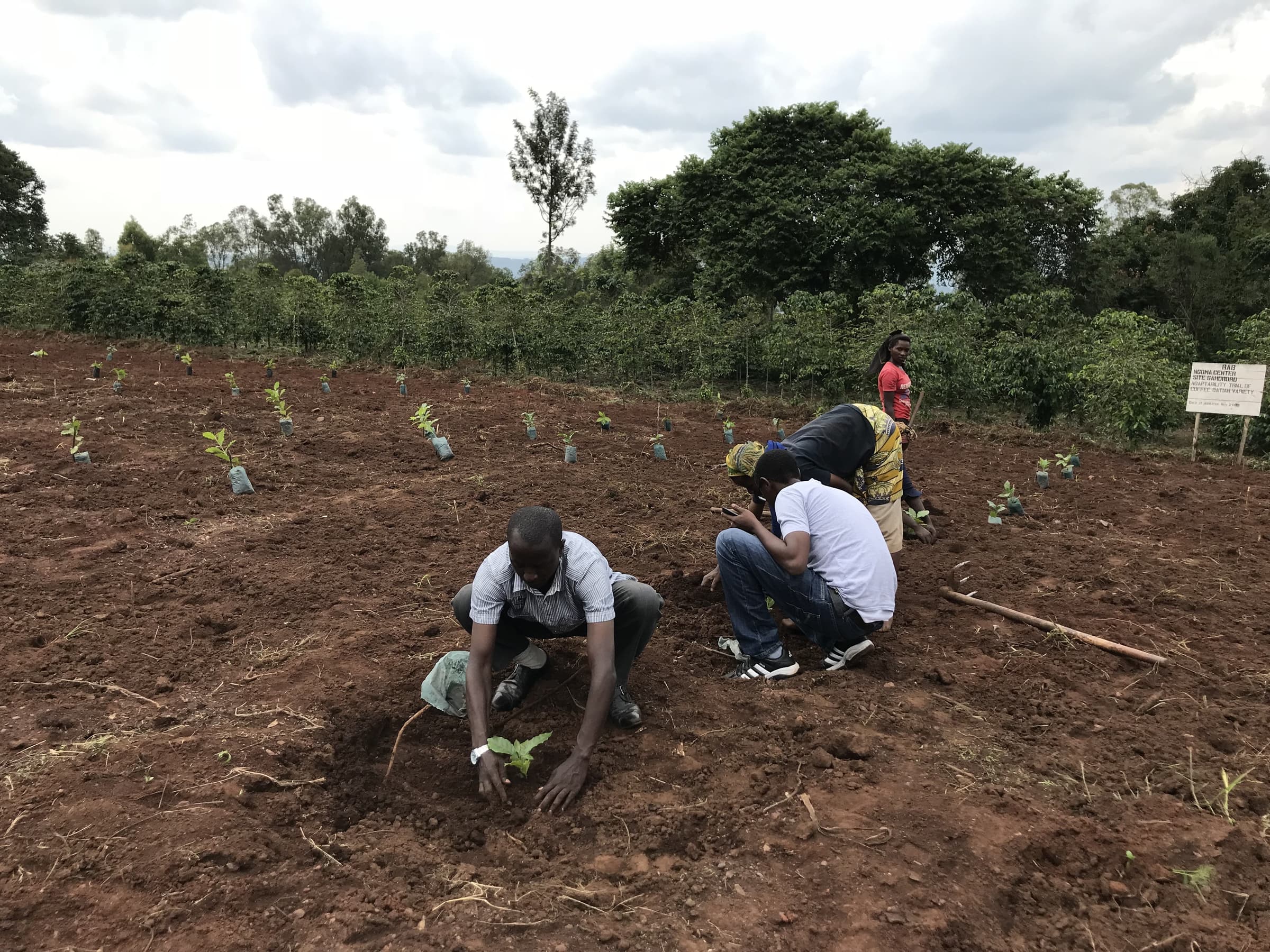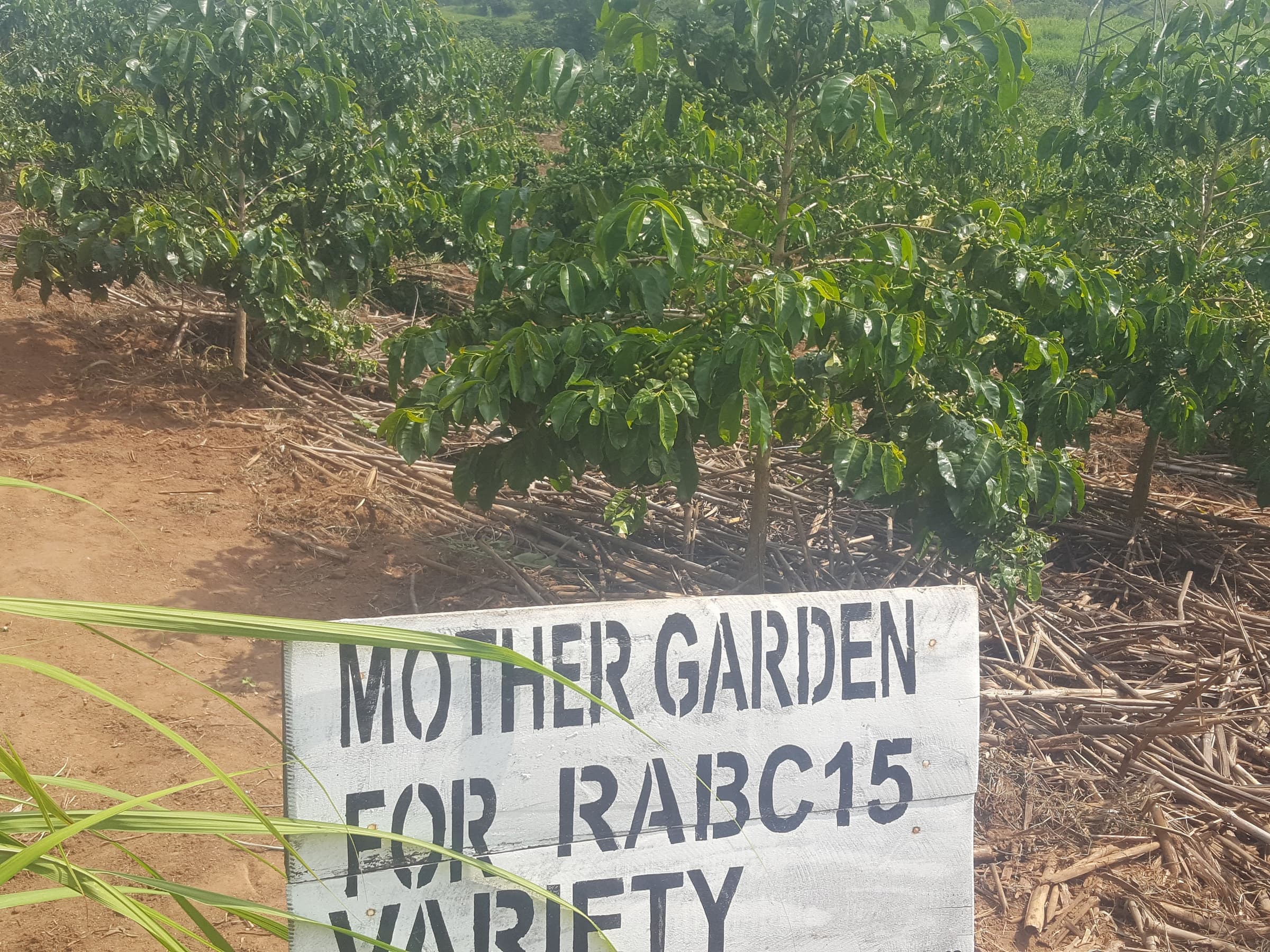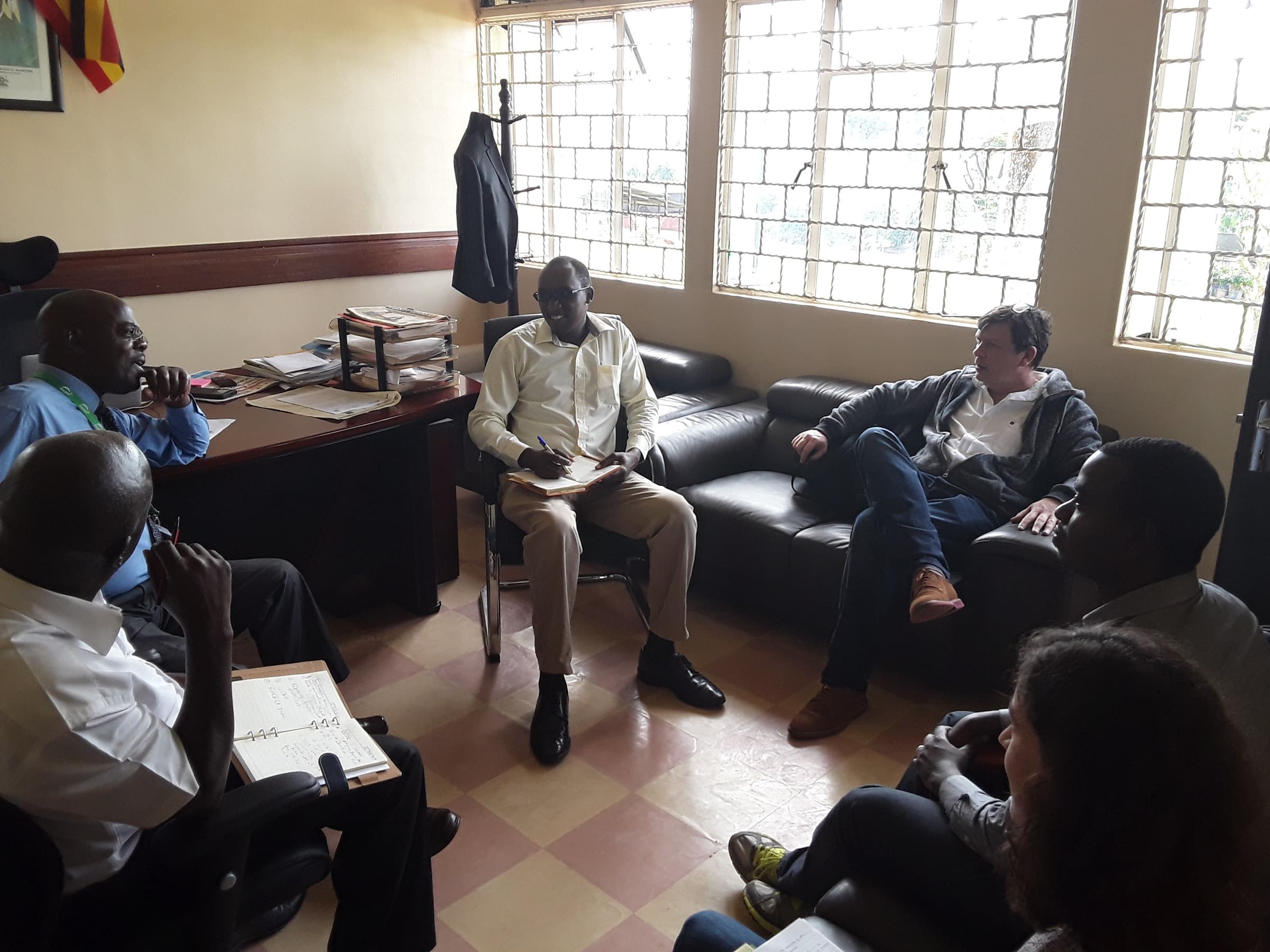A new African coffee breeding hub in Rwanda
Created in partnership with the Rwanda Agriculture Board, the WCR African breeding hub will provide breeding material for the creation of local varieties, foster adaptation of other regions’ improved varieties, and much more.

F1 hybrid crosses created in Central America are being sent to Rwanda to test their performance through local adaptation trials.
Since our creation in 2012, World Coffee Research (WCR) has worked to create a path for sustainable coffee production through agricultural innovation to help coffee farmers face the challenges of climate change. One of our main areas of focus has been the creation and propagation of the next generation of coffee varieties that are high in quality and yield, and resilient to diseases and the effects of climate change.
This month, we are making great strides in this area with the launch of our African breeding hub in Rwanda, hosted by our partners at the Rwanda Agriculture Board (RAB).
This is WCR’s second breeding hub, following our Latin America hub located in Central America. The hubs serve as centralized locations for countries in each region to access breeding populations, expertise, and materials that can be be utilized to create new coffee varieties for the benefit of local producers in each country or region.

The hub will enable breeders to develop disease-resistant varieties, such as the Rwanda-created RAB C15.
Our African breeding hub will feature numerous activities, including:
- Working with WCR's Core Collection—a collection of 100 genetically diverse coffees that can serve as a “breeding pool” that breeders can use for the creation of new F1 hybrid crosses. WCR will send seeds from the Core Collection to the hub in Rwanda so that breeders there will be able to use this genetically diverse breeding material for the creation of local varieties.
- WCR has created numerous F1 hybrid crosses—hybrids bred to be vigorous while also high in quality and yield—in Central America. Plants from 46 crosses made in Central America have been sent to Rwanda so that hub breeders can test their performance in Africa through local adaptation trials.
- We will assist RAB and breeders from neighboring countries to make new F1 hybrid crosses using the Core Collection and the best available local varieties from each country, with the goal of creating new F1 hybrid varieties that specifically address local needs.
- WCR will introduce molecular breeding approaches to be used by breeders at the hub. Molecular breeding identifies the most important genetic components to target in breeding and can speed up the development of new varieties.
- An annual breeders' meeting will also take place through the hub, convening researchers from throughout Africa to learn the newest research and approaches and share knowledge.
The hub is expected to generate the next generation of coffee varieties that will be adapted to various growing conditions in Africa and sustain the industry’s genetic and breeding pools. —Simon Martin, Rwanda Agricultural Board Ph.D. breeder
Simon Martin, Rwanda Agricultural Board Ph.D. breeder and project leader, says the hub will play an important role in African coffee going forward. He mentions that Rwanda has fallen short of export targets in recent years, and coffee production throughout Africa is declining, due to a combination of aging trees, low-yielding varieties, disease and pests, and other factors. The need for resilient, healthy varieties is clear. “In Rwanda, like many other coffee-growing countries in Africa, farmers do not have many choices about which varieties are available to them as far as high-yielding potential, good-quality multiple stress resistance, and climate-change resilience are concerned,” Martin says.
Since 2011, RAB has run a comprehensive coffee breeding program; among its successes is the recent release of the disease-resistant coffee variety RAB C15 for coffee producers in Rwanda.
Martin says that the hub will help create more modern varieties that will help coffee farmers in Africa going forward. “The hub is expected to generate the next generation of coffee varieties that will be adapted to various growing conditions in Africa and sustain the industry’s genetic and breeding pools,” he says. “The creation of new, highly adaptable varieties, coupled with a sustainable and effective seed production and distribution systems, is expected to improve coffee productivity and quality gains, not only in Rwanda’s coffee industry, but also in Africa.”

Job Chemutai (center), a breeder from Uganda's National Coffee Research Institute (NACORI), is eager to use the new breeding hub in Rwanda to identify varieties that will combat the trend of low yields. Also in this picture, from left: Dr. Pascal Musoli (Breeder), Dr William Wagoire (Director, NACORI), and Christophe Montagnon, Pascal Kalisa, and Danielle Kneuppel (World Coffee Research).
While the breeding hub will be located in Rwanda, it will be used by nations throughout Africa. Job Chemutai, a breeder-geneticist with Uganda’s National Coffee Research Institute (NaCORI), says his organization—like RAB in Rwanda—has been working to identify varieties that will combat the trend of low yields. He is excited about how the Rwanda hub, as well as a planned Robusta-focused breeding hub in Uganda, will help with that mission. “I anticipate the breeding hubs to develop new improved coffee varieties, technologies, and useful coffee-related information for both coffee farmers and the promising coffee sector in the region,” Chemutai says.
With the African breeding hub now launched in partnership with RAB, WCR is excited to present this resource to the continent’s coffee-producing countries. “Helping coffee farmers navigate climate change takes global collaboration,” says Tim Schilling, WCR’s founder and CEO. “WCR is proud of its role in connecting countries and researchers around the world with each other and the latest advanced science. It’s thrilling to see what we can do when we work together.”